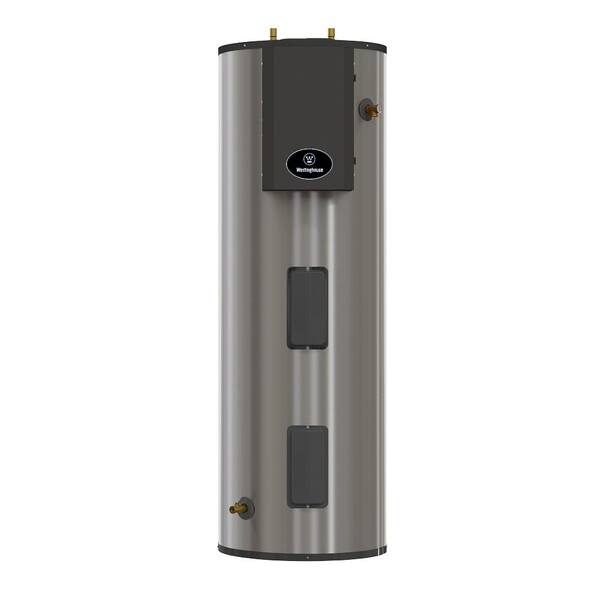menards electric hot water heaters
Question 1: What is the Westinghouse 100 Gal. 10 Year 13,500-Watt Electric Water Heater?

The Westinghouse 100 Gal. 10 Year 13,500-Watt Electric Water Heater is a high-capacity electric water heater designed for residential use. It has a 100-gallon tank size and provides a 10-year warranty for added peace of mind.
Question 2: What are the features of the Westinghouse 100 Gal. 10 Year 13,500-Watt Electric Water Heater?

The Westinghouse 100 Gal. 10 Year 13,500-Watt Electric Water Heater offers the following features:
- 100-gallon tank size
- 13,500-watt power output
- 10-year warranty
- Electric power source
Question 3: What is the Richmond Electric Water Heater Wiring Diagram?

The Richmond Electric Water Heater Wiring Diagram is a schematic diagram that illustrates the electrical connections and wiring configuration for the Richmond electric water heater. It helps users understand how the various components of the water heater are connected and how electricity flows within the system.
Question 4: Can you provide a comprehensive explanation of the Richmond Electric Water Heater Wiring Diagram?

A comprehensive explanation of the Richmond Electric Water Heater Wiring Diagram would include the following elements:
- Identification of major components in the diagram
- Explanation of the wiring connections and their purposes
- Description of the electrical flow within the system
- Guidance on proper installation and troubleshooting
- Highlighting important safety considerations
Question 5: What are some tools that can be used to enhance the understanding of water heater wiring diagrams?
To enhance the understanding of water heater wiring diagrams, the following tools can be helpful:
- Multimeter: Used to measure voltage, resistance, and continuity in the electrical system
- Circuit tester: Used to identify if a wire or component is carrying electricity
- Electrical symbols chart: Provides a reference for common symbols used in electrical diagrams
- Manufacturer's documentation: Includes manuals and guides specific to the water heater model
- Online forums and communities: Can provide insights and troubleshooting tips from experienced users
Question 6: Are there any specific safety precautions to follow when working with water heater wiring?
Yes, when working with water heater wiring, it is important to follow these safety precautions:
- Ensure the power to the water heater is turned off before starting any work
- Avoid working in wet conditions or with wet hands
- Use insulated tools to minimize the risk of electric shock
- Follow the manufacturer's instructions and wiring diagrams carefully
- If unsure, consult a qualified electrician
Question 7: What are some common issues or problems that can occur with electric water heaters?
Common issues or problems that can occur with electric water heaters include:
- Insufficient hot water
- Water not getting hot enough
- Strange noises coming from the water heater
- Water leaks or drips
- Frequent power tripping
- Failure of heating elements or thermostats
- Sediment buildup in the tank
Question 8: How can one troubleshoot insufficient hot water in an electric water heater?
To troubleshoot insufficient hot water in an electric water heater, one can follow these steps:
- Check the temperature setting on the thermostat and adjust if needed
- Inspect the heating elements for signs of damage or malfunction
- Flush the water heater to remove any sediment buildup
- Ensure the water heater is the appropriate size for the household's hot water demands
- If the issue persists, it may be necessary to consult a professional plumber or electrician
Question 9: Is it possible to replace the heating elements in an electric water heater?
Yes, it is possible to replace the heating elements in an electric water heater. However, it is recommended to consult the water heater's manufacturer or a qualified professional for guidance and to ensure proper installation.
Question 10: How can one prevent sediment buildup in an electric water heater?
To prevent sediment buildup in an electric water heater, the following steps can be taken:
- Regularly flush the water heater to remove any sediment accumulation
- Consider installing a sediment filter or water treatment system
- Drain and refill the water heater at least once a year
Question 11: What are some energy-saving tips for electric water heaters?
To save energy with electric water heaters, consider implementing the following tips:
- Lower the temperature setting on the thermostat
- Use insulated hot water pipes to reduce heat loss
- Install a timer or smart thermostat to control when the water heater operates
- Consider using a tankless or on-demand water heater for more efficient water heating
Question 12: How often should an electric water heater be serviced?
The frequency of servicing an electric water heater may vary, but it is generally recommended to have it inspected and serviced at least once a year. Regular maintenance can help prolong the lifespan of the water heater and ensure optimal performance.